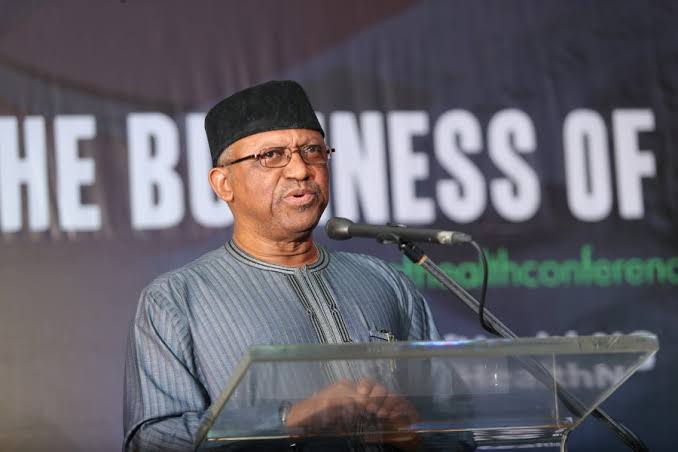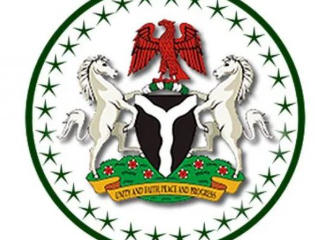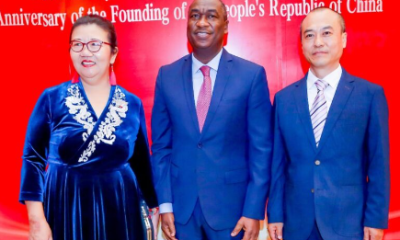Health
FG reiterates commitment to ensure access to quality healthcare for Nigerians
Published
4 years agoon
By
Seun Owope
FG reiterates commitment to ensure access to quality healthcare for Nigerians.
The the Federal Government is committed to repositioning the healthcare sector to ensure all Nigerians, particularly the adolescent and young people.
The Minister of Health, Dr Osagie Ehanire, made this known at the 2022 National and International Adolescent Health Week (IAHW) news conference on Monday in Abuja.
“The federal government remains resolute to ensure access to quality healthcare to Nigerians.
“Adolescents constitute significant proportions 22 per cent of the populations of the country and the Progress towards the achievement of the Sustainable Development Goals and Universal Health Coverage requires keeping them healthy by appropriate investment and effective coordination.
“I am glad to inform you that we have made modest progress, National Adolescent Health and development TWG has been repositioned and inaugurated for better performance with membership drawn from relevant stakeholders including Young People led Organisations”.
“In addition, we created a budget line at national levels for adolescent, developed a two-year National costed work plan and prioritised activities for implementation in 2022,” he said.
At the subnational levels, the minister said the National adolescent health policy is being domesticated, frontline health workers capacities are being built and strengthened in collaboration with our partners WHO, UNICEF, Lafiya project to mention but a few.
“We are therefore advocating and making all efforts to strengthen effective coordination of adolescent health program nationwide”.
“I, therefore, urge all the partners to replicate the same structure in their respective states to ensure continuous delivery of essential gender-responsive services and to mitigate barriers faced by adolescents and young people in accessing services.
“To make progress on Universal Health Coverage, Nigeria recognises the need to keep adolescents at the centre of all programmes that are centred around their health and development in line with the vision that no adolescent or young person is left behind,” he said.
The 2018 National Demographic and Health Survey (NDHS), he said, showed that 19 per cent of teenage girls are mothers and pregnant with their first child while 32 per cent do not attend antenatal care.
He also said that 66 per cent of the teenage-mothers are delivered without supervision by skilled birth attendants.
He also said that the survey showed that young people have an HIV prevalence of 1.9 million which has high gender disparity among them and this is compounded with the impact of the COVID-19 pandemic on Nigeria’s already fragile health system.
Similarly, the Minister of State for Health, Dr Olorunnimbe Mamora also said approximately 12 million girls aged 15-19 and at least 777,000 girls under 15 years give birth each year in developing regions of the world.
Mamora said at least 10 million unintended pregnancies occur each year among adolescent girls aged 15 to 19 in the developing world.
“The complications during pregnancy and childbirth are the leading cause of death for 15 to 19-year-old girls globally.
“Out of the estimated 5.6 million abortions that occur each year among adolescent girls aged 15 to 19 years, 3.9 million are unsafe, contributing to maternal mortality, morbidity and lasting health problems,” he said.
The minister said adolescent mothers (ages 10–19 years) face higher risks of eclampsia, puerperal endometritis, and systemic infections than women aged 20 to 24 years and their babies faced higher risks of low birth weight, preterm delivery and severe neonatal conditions.
“You may now begin to understand the reason why paying adequate attention to the health and developmental issues of adolescents should take the centre stage and prioritisation.
“As we mark this national and international adolescent week, let us not forget to discuss deeply the need to provide adolescents with comprehensive, appropriate confidential and reliable quality services.
“There is also a huge need for policy implementation that uses adolescent self-reported data to help assess the quality of preventive care provided to youth,” he reiterated.
Also speaking, the World Health Organisation (WHO) Country Representative, Dr Walter Kazadi Molumbo pointed out that since its inception, International Adolescent Health Week had been telling the story of the silent cry of persons aged between 10 and 19 years.
Molumbo described them as a cohort people failed to listen to because world erroneously considered and treated them either as ‘older children’ or ‘younger adults’.
He said the COVID-19 pandemic halted the plans for 2020 but in 2021, while still battling with the pandemic which had high mortality in adults.
He said:” the pandemic also threatened to erode the gains we had made as well as jeopardize the future wellbeing of adolescents.”
“Now in 2022, as the world settles into a peri-COVID 19 era, the leading health issues of adolescents such as alcohol and tobacco use, unsafe sex, road injuries, poor diet, inadequate physical activity, diseases such as tuberculosis and mental disorders have not changed much, rather they have been exacerbated by the pandemic”.
You may like


FG dismisses viral video, confirms all Nigerians in Iran are safe


BIRTHDAY MESSAGE TO THE PRESIDENT, COMMANDER IN CHIEF


FG approves special End-of-Year train service for Nigerians


Lagos State reinforces ties with China


List of Police telephone numbers of Area Commands, Divisions in Lagos


Tinubu to inaugurate aviation, agricultural projects in Minna
Trending

 Entertainment1 week ago
Entertainment1 week agoSinger Simi faces backlash after TikToker admits to false rape allegation

 Entertainment4 days ago
Entertainment4 days agoSimi addresses resurfaced 2012 tweets amid online backlash

 Comments and Issues1 week ago
Comments and Issues1 week agoNigeria’s Declining Oil Output and Soaring Foreign Portfolio Investment Inflow

 Comments and Issues1 week ago
Comments and Issues1 week agoEx-prince Andrew’s arrest, lessons for Nigeria

 Business1 week ago
Business1 week agoPENGASSAN warns Tinubu’s executive order on oil revenues could jeopardise 4,000 jobs

 Comments and Issues1 week ago
Comments and Issues1 week agoThe Seyi Tinubu’s jellof rice, loaves of bread

 Health6 days ago
Health6 days agoSCFN, LUTH introduce bone marrow transplants as curative treatment for sickle cell

 Football6 days ago
Football6 days agoHarry Kane nets brace as Bayern edge Frankfurt 3–2 to go nine points clear

